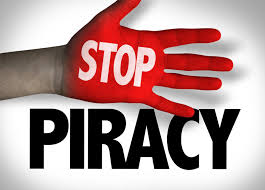The Federal Government has said piracy is destroying the creative economy in the country.
The Director-General of the Nigerian Copyright Commission, Dr. John Asein, said this during a sensitisation programme on the Copyright Act for teachers in Osun on Tuesday in Osogbo.
Asein, represented by the State Coordinator of the commission in Ibadan, Mrs. Oluropo Oke, said piracy not only encourages the production of substandard goods but also steals income from the rightful owners.
According to him, piracy, whether in the form of unauthorised reproduction of textbooks, educational materials, literary works, music, films, or digital content, not only robs creators of their rightful rewards but also undermines the quality and sustainability of creative and educational resources.
Asein, however, said one of the ways the law protects and safeguards the rights of individuals in the works created by them was through the provision of Act No. 8, Copyright Act, 2022.
He said that under the Copyright Act, anyone selling or buying pirated materials would, upon conviction, be liable to a fine, imprisonment, or both. According to him, piracy is the unauthorised duplication or exhibition of an original work for commercial gain without the consent of the right owner or licensee.
He, however, emphasised that no one should be allowed to steal or exploit another person’s work without the owner’s consent or authorisation.
“It is crucial to understand that the fight against piracy is not the sole responsibility of the Nigerian Copyright Commission or law enforcement agencies alone.
It is a collective duty that begins with awareness and personal commitment,” he said.
Asein said the sensitisation programme was designed to equip teachers with the knowledge and necessary tools to identify, resist, and discourage acts of piracy, both in the learning environment and in the broader society.
He said the programme would also acquaint teachers with the legal provisions set out in the new Copyright Act to sanitise and guide general practices and activities of schools regarding the purchasing and distribution of books.
According to him, ignorance or mistake is not an excuse under the law, and to be informed is to be forewarned.
“As teachers, you have a unique and powerful influence over the next generation. As educators, you stand at the very heart of knowledge creation, dissemination, and preservation.
Your role goes beyond classroom instruction; you are custodians of intellectual integrity and models for the respect of ideas, innovations, and creative works.
By modeling respect for intellectual property and teaching your students to value originality, you help instil values that will shape a society where creativity is protected, rewarded, and sustained.
Piracy may seem like a ‘quick fix’ for access to materials, but its long-term effects are deeply damaging. It discourages authors, publishers, and innovators, erodes the quality of educational resources, and weakens the creative economy,” he said.
Asein said the commission, as the Federal Government agency charged with the administration, regulation, and enforcement of copyright law, would continue to purge the country of piracy.
Speaking, the state chairman of the All Nigeria Confederation of Principals of Secondary Schools (ANCOPSS), Mrs. Esther Awoyemi, said the sensitisation programme would enable teachers to know the dangers of buying pirated books.
In his remarks, Director of Curriculum, Osun Ministry of Education, Mr. Olusegun Adebayo, urged school proprietors to always visit the ministry for the contacts of original authors of books.
Adebayo said the state government would continue to educate schools on the dangers of pirated books. (NAN)





